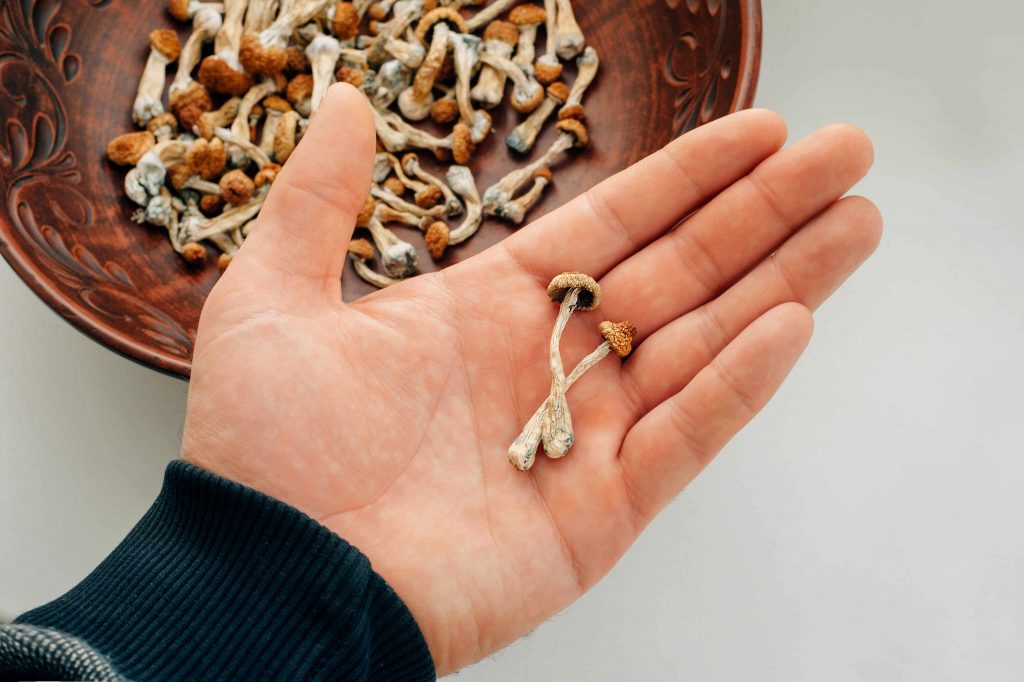
The Land Down Under made a historic move over the weekend, though some experts are cautious as to how exactly the major change will fully pan out.
Australia became the first country in the world to authorize psilocybin and MDMA use through a doctor’s prescription to treat psychiatric conditions like post-traumatic stress disorder (PTSD) and depression. Beginning Saturday, July 1, both drugs were authorized for therapeutic use after regulators approved the up-and-coming treatment option earlier this year.
Australia Makes Psychedelic History
Australia’s drug regulator, the Therapeutic Goods Administration (TGA), approved the move back in February and indicated that the change wasn’t made lightly. Rather, it came after a nearly three-year decision-making process, including extensive consultation with a number of experts on the topic. MDMA, also known as ecstasy or molly, was approved as a treatment for PTSD, while psilocybin, the psychoactive substance in psychedelic mushrooms, was approved for treatment-resistant depression.
Both drugs will be down-scheduled from Australia’s strictest category, schedule 9 donating “prohibited substances,” to schedule 8, or controlled drugs, but solely for medical use in psychedelic-assisted psychotherapy.
While cities and states in the United States have gradually eased restrictions on psychedelics to similarly usher in a new era of therapeutic care, Australia is the first country in the world to down-schedule psilocybin and MDMA for clinical treatments. The country will now allow these substances to be adopted as part of therapy sessions under the guidance of a qualified and authorized practitioner.
Mounting Evidence on the Potential of Psychedelic Treatments
While psychedelic drugs like psilocybin and MDMA have been long criminalized, research has opened the doors to a potentially game-changing alternative for mental health treatment, especially for conditions that cannot be treated with traditional methods.
Among myriad other studies on the topic, one 2022 study involving the largest randomized, controlled, double-blind study of psilocybin to date showed “significant” improvements to treatment-resistant depression among participants. The study involved two doses, 1 mg and 25 mg of psilocybin, and found that those who received a 25 mg dose with psychological support experienced a “highly statistically significant reduction in symptoms of depression after three weeks.”
Similarly, researchers have heavily examined MDMA as a potential treatment for PTSD as the ongoing psychedelic renaissance unfolds. The results of one clinical trial from earlier this year “support the development of MDMA-assisted therapy as a potentially new breakthrough therapy to treat individuals with PTSD—a patient population that is often left to suffer for years,” according to Amy Emerson, chief executive officer of MAPS Public Benefit Corporation which conducted the study.
These studies are just two of many in the growing psychedelic medicine field, though more research is still needed to fully unravel the potential of drugs like MDMA and psilocybin. And some Australian experts have expressed concern about the recent move.
Concerns and Hopes for the Future of Mental Health
For one, these are psychedelic drugs, so using them carries the risk of having a bad trip. Susan Rossell is a psychiatrist at Swinburne University of Technology in Melbourne and is working on Australia’s only active clinical trial to test psilocybin-assisted psychotherapy for treatment-resistant depression. Rossell indicated that one of the gaps research has yet to close is determining what type of patient is best suited to the treatment.
“It’s not for everybody. We need to work out who these people are that are going to have bad experiences, and not recommend it,” Rossell told Nature, adding that she fears, should the drug be improperly administered, treatment could result in bad trips and leave patients with more psychological issues than they came in with.
In a broader sense, it’s clear that the shift around psychedelic medicine is moving much more quickly than cannabis did prior, as a similarly criminalized drug that is now undergoing major reform. Beyond Australia, some leaders and experts have similarly questioned whether things are moving too quickly.
Others have indicated Australia’s move sets a major milestone for psychedelic-assisted therapies. Payton Nyquest, co-founder and CEO of psychedelic-focused mental healthcare company Numinus, praised regulators for making the bold move.
“The TGA’s approval surrounding MDMA and psilocybin for specific and controlled usage is a welcome step forward for Australia as well as the entire mental health field,” Nyquvest wrote in an email to Forbes. “This decision impacts the millions of people who are enduring treatment-resistant mental health conditions and opens a pathway to profoundly change their lives. I look forward to watching progress being made on a global scale as a result of our industry’s collective mission to help the world heal.”
Read full article on High Times

